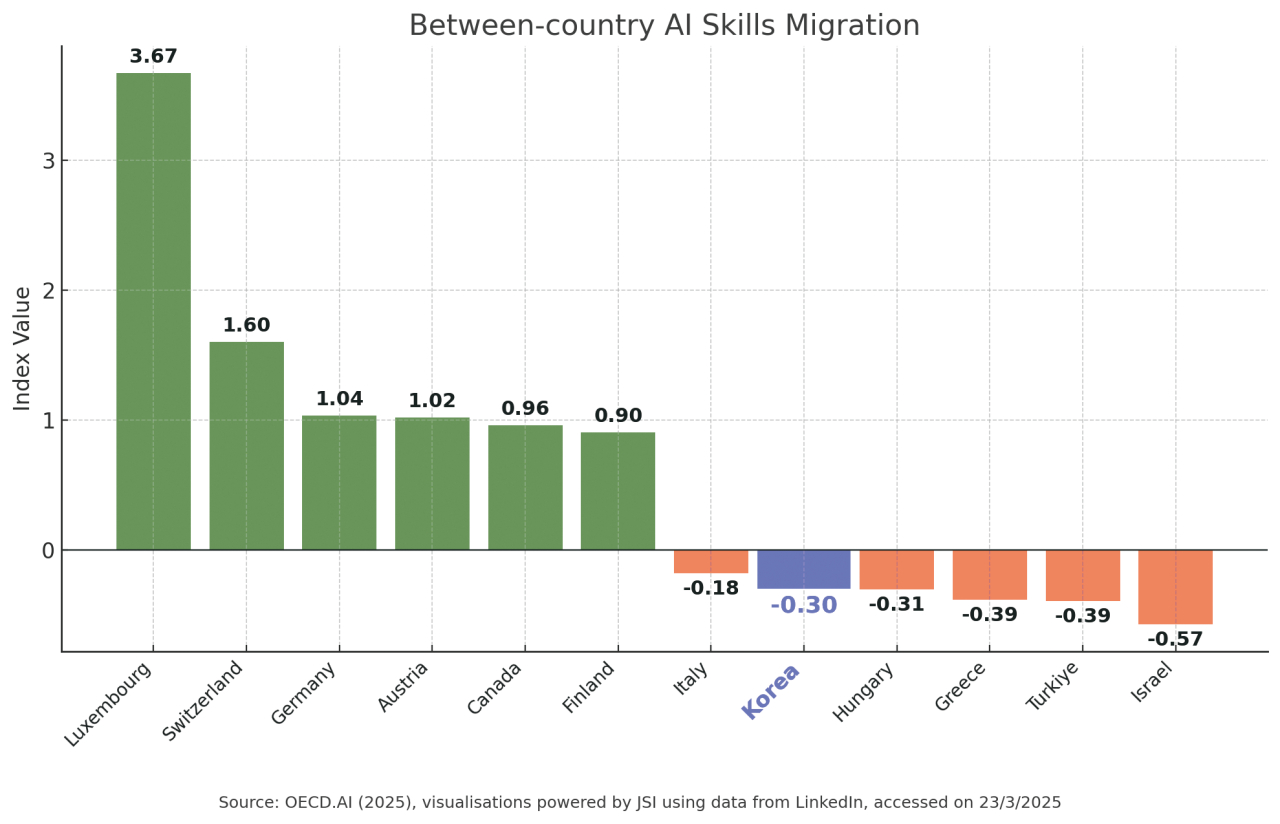
Once among the world’s poorest nations, Korea has defied the odds, emerging as a leading force in technology, innovation, and economic growth. Without any valuable resources available from the land, Korea has made the impossible leap solely through human initiative. The dramatic rise of successful companies such as Samsung and Hyundai propelled Korea’s technological development. Nevertheless, Korea is failing to create companies with global influence these days, and even the existing businesses are struggling in the global market. Despite rapid growth in the past, Korea lacks the fundamentals of research and development and is now gasping to catch up with leading countries. Korea has fallen behind in the tech race.
Undoubtedly, AI is the hottest keyword in the world across all fields. Acknowledging the importance, the leading nations in the race are actively enforcing strategic policies to strengthen their AI power. The two most aggressive players are the US and China.
Entering the Oval Office, Donald Trump, the president of the US, announced the Stargate Project. The project is a joint venture to build infrastructures for AI. Initially starting with 100 billion USD, the venture will fund an additional 500 billion USD by 2029. On March 7, Bloomberg reported that OpenAI and Oracle Corporation, members of the Stargate, plan to construct a data center in Abilene, Texas. They are going to house 64,000 Nvidia GB200 chips, the latest Blackwell-based AI accelerator. The first set of 16,000 chips will be installed by this summer.
On March 6, China announced a one trillion RMB national venture capital guidance fund. The Chinese government is partnering up with private companies to focus on advanced technology such as AI, quantum technology, and renewable energy. According to the director of the National Development and Reform Commission, the fund aims to follow long-term investment cycles, adopt a higher risk tolerance, and support technology enterprises through market-driven strategies, as reported by Reuters.
On the other hand, the Korean government is passive about investing in high-tech. Korea is a follow-up player in the AI field, and yet, it is not taking aggressive measures. Without any effective centralized policies or funds, skilled experts are leaving Korea. Specialists choose other countries for better working conditions and higher pay. Overseas institutions with massive capital can continuously support long-term research and take risks. As a result, there is less pressure on failure. However, the Korean government and companies are short in finances and time to run multiple projects in the long term.
Quantum technology is another concern of Korea. Along with AI, quantum technology is expected to be the next game changer. However, Korea’s quantum technology is at the lowest level compared to major countries in the world. According to the Ministry of Science and ICT’s Global R&D Strategic Map, among 12 countries, Korea scored the lowest on all three sections of quantum computing, quantum communication, and quantum sensors. The Global R&D Strategy Map calculates a standardized score out of 100 points based on the top 10% of cited papers, the number of patents, and expert qualitative evaluations. Korea received 2.3, 2.9, and 2.9 in quantum computing, quantum communication, and quantum sensors, respectively. Meanwhile, the US and China, the top 2 countries, each scored 100 and 35 in quantum computing, 84.8 and 82.5 in quantum communication, and 100 and 40.9 in quantum sensors.
The shortage of quantum experts is a serious issue. Yonsei Quantum Week 2025 was held during the first week of March, bringing together numerous domestic and international quantum science and technology companies and leading experts in the field. During the event, Jae-Ho Cheong, the director of the Quantum Computing Project Group, emphasized the importance of quantum literacy and expressed concern that fewer than 100 domestic experts fully understand quantum computing principles and algorithms. Due to the limited pool of experts and insufficient funding, many Korean quantum researchers working abroad are hesitant to return to Korea, as they struggle to find colleagues and facilities that match the standards of their current workplaces.
Despite these holdbacks in securing technological competitiveness, the fundamental issue lies in the government’s approach to R&D. Korea has achieved its global influence through its skilled human resources and technological advancements. However, the government remains naïve and indifferent to the importance of science and technology. The recent R&D budget cuts reflect their stance and a lack of foresight in sustaining innovation and progress. If this indifference and incompetence persists, Korea risks falling behind and jeopardizing its success.


